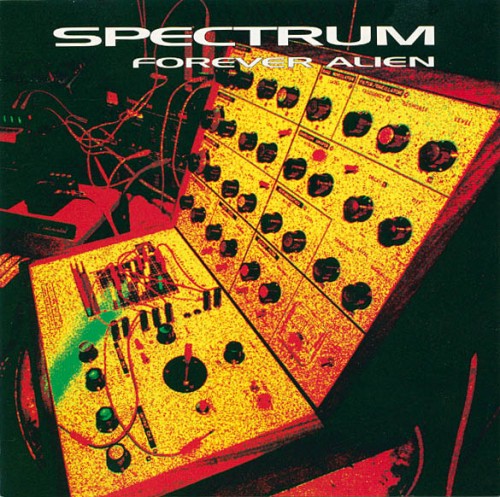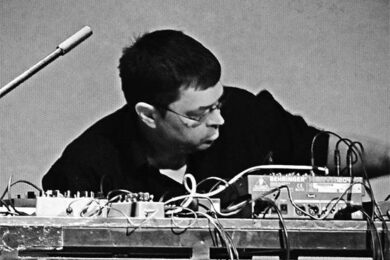12. SpectrumForever Alien

I always had an inherent mistrust of ‘indie’ bands dabbling in electronic music (no names, no pack drill) but Pete Kember, aka Sonic Boom, was one of my heroes from way back. I got into his first group Spacemen 3 out of random curiosity, having read about them in the music press. I remember being in the record shop, holding their latest album Playing With Fire in my hands and being wracked with indecision over whether I should spend my meagre finances on this or something else. In the end, curiosity got the better of me and I’m glad it did because I instantly fell in love with that record. After the Spacemen broke up and Kember formed Spectrum, I continued to erratically follow his work through the nineties. Over time the music became increasingly more electronic in nature, and by the time Forever Alien arrived, the transition was almost complete.
The album is dominated by the sounds of the British EMS VCS3 and Synthi AKS synths, which are also visually fetishised in the sleeve artwork. Those synths were the workhorses of people like Tristram Cary and the Radiophonic Workshop in the early 70s, who used to creep me out as a little kid when they used them for special effects on TV programmes, and I guess this album probably had a lot to do with awakening my subsequent interest in Radiophonic music. There’s even a track on the album called ‘Delia Derbyshire’, who at that time was barely remembered by anyone. I had a Doctor Who soundtrack album I’d owned since I was a school kid, which mentioned her name in the credits, but I still didn’t really know anything about Delia at that point. I think this record also had a lot to do with my music radar gradually shifting sideways into more esoteric areas beyond the the formal conventions of techno-derived electronica.
As well as Spectrum, Kember had also been making even more ‘out-there’ music under the Experimental Audio Research banner, and albums like Phenomena 256 (featuring Kevin Martin) and Data Rape (early example of ‘circuit bending’) were taking me out into the furthest realms of drone, minimalism and psychedelia, and inspiring me to explore a lot of the stuff I’d missed from the past. But much of that exploration would take place in the following decade, with the advent of broadband and file-sharing unlocking the cupboard to a wealth of music almost impossible to acquire in the real world.


